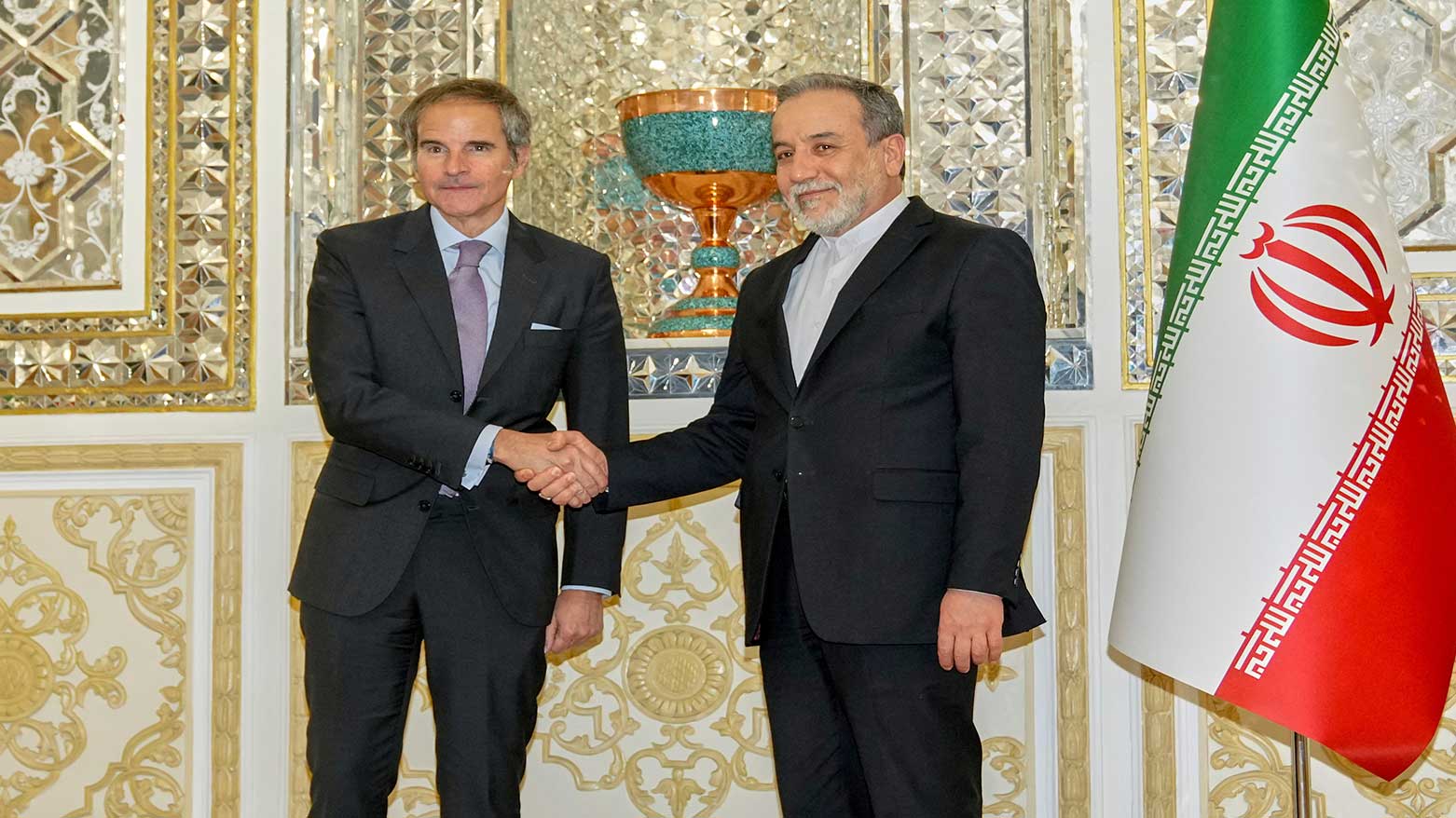Iran Confirms Rome as Site of Upcoming Nuclear Talks, Pezeshkian Accepts Zarif’s Resignation, Appoints Successor
“Iran must stop and eliminate its nuclear enrichment and weaponization program,” Witkoff wrote on X. “It is imperative for the world that we create a tough, fair deal that will endure, and that is what President Trump has asked me to do.”

ERBIL (Kurdistan24) – Iran confirmed Wednesday that the next round of nuclear negotiations with the United States will be held this weekend in Rome, following days of confusion over the talks’ location. The confirmation, announced by Iranian state television, comes at a pivotal moment in diplomatic efforts to curb Iran’s advancing nuclear program amid rising regional tensions, according to the Associated Press (AP).
The renewed negotiations, mediated once again by Oman, are scheduled for Saturday. Oman’s foreign minister previously served as a conduit between the two sides during last weekend’s preliminary talks in Muscat. Initially, officials had cited Rome as the venue, but Iran briefly suggested a return to Oman before settling again on the Italian capital. The U.S. has yet to officially confirm the location, though President Donald Trump spoke with Oman’s Sultan Haitham bin Tariq on Tuesday during the latter’s visit to the Netherlands.
The stakes could hardly be higher. With nearly five decades of hostility between the two countries, both sides are under immense pressure. President Trump has repeatedly threatened military action if a deal isn’t reached, while Iranian officials continue to warn that their growing uranium stockpile—now enriched up to 60%, just short of weapons-grade—could push them toward developing a nuclear weapon.
Pezeshkian Accepts Zarif’s Resignation, Appoints Successor
Wednesday’s developments also included political shifts within Iran. President Masoud Pezeshkian formally accepted the resignation of former Vice President Mohammad Javad Zarif, who had been a central figure in Iran’s 2015 nuclear accord. Zarif, a prominent backer of Pezeshkian in last year’s presidential election, had faced mounting pressure from hardliners who accused him of conceding too much in past negotiations.
Although Zarif submitted his resignation in March, Pezeshkian delayed acceptance until Tuesday evening. A statement from the presidency praised Zarif’s contributions but noted that “due to certain issues, his administration can no longer benefit from Zarif’s valuable knowledge and expertise.”
Pezeshkian appointed Mohsen Ismaili, a 59-year-old legal expert and political moderate, as the new vice president for strategic affairs.
IAEA Chief Grossi Arrives in Tehran Amid Reduced Access
Adding to the diplomatic urgency, Rafael Mariano Grossi, head of the International Atomic Energy Agency (IAEA), arrived in Tehran Wednesday for meetings with top Iranian officials, including Foreign Minister Abbas Araghchi. Iran has significantly reduced the IAEA’s monitoring capabilities since the collapse of the 2015 deal following Trump’s 2018 withdrawal.
After their meeting, Grossi posted on X: “Cooperation with the IAEA is indispensable to provide credible assurances about the peaceful nature of Iran’s nuclear program at a time when diplomacy is urgently needed.”
Important to meet with Foreign Minister @araghchi during my timely visit to Iran. Cooperation with @IAEAorg is indispensable to provide credible assurances about the peaceful nature of Iran’s nuclear programme at a time when diplomacy is urgently needed. pic.twitter.com/wlmsghttIK
— Rafael Mariano Grossi (@rafaelmgrossi) April 16, 2025
IRNA, Iran’s state-run news agency, said Araghchi briefed Grossi on last week’s talks with the U.S., and urged the IAEA to maintain a neutral and transparent position amid ongoing threats against Iran’s nuclear facilities. “As a variety of spoilers are gathered to derail current negotiations, we need a Director General of Peace,” Araghchi wrote on X, expressing hope that Grossi would help steer the IAEA away from politicization.
Iran’s enrichment activities continue unchecked, and surveillance by IAEA cameras has been disrupted. Tehran has also denied access to some of the agency’s most experienced inspectors. Despite these challenges, the IAEA still retains a degree of access that would be critical in verifying any future agreement.
Had useful discussion with visiting IAEA chief Grossi. In the coming months, the Agency can play a crucial role in peaceful settlement of the Iranian nuclear file.
— Seyed Abbas Araghchi (@araghchi) April 17, 2025
As variety of spoilers are gathered to derail current negotiations, we need a Director General of Peace.
Our… pic.twitter.com/bwWokSnGZj
Iran Voices Concern Over U.S. Contradictory Signals in Nuclear Talks
Foreign Minister Araghchi also criticized the U.S. over conflicting messages emerging from Washington. His remarks appeared to target Steve Witkoff, the U.S. envoy for Middle East negotiations, who initially floated a return to the 3.67% enrichment limit of the 2015 deal, but later declared that only a “Trump deal” would be acceptable.
“Iran must stop and eliminate its nuclear enrichment and weaponization program,” Witkoff wrote on X. “It is imperative for the world that we create a tough, fair deal that will endure, and that is what President Trump has asked me to do.”
In response, Araghchi warned Washington against “contradictory and opposing stances,” reaffirming that enrichment is “a real, accepted matter” for Iran. “We are prepared to build trust and address any potential concerns,” he said, “but the core issue of enrichment itself is not negotiable.”
As the world watches closely, this weekend's talks in Rome could mark a turning point—or a tipping point—in one of the most sensitive geopolitical standoffs of the modern era.
